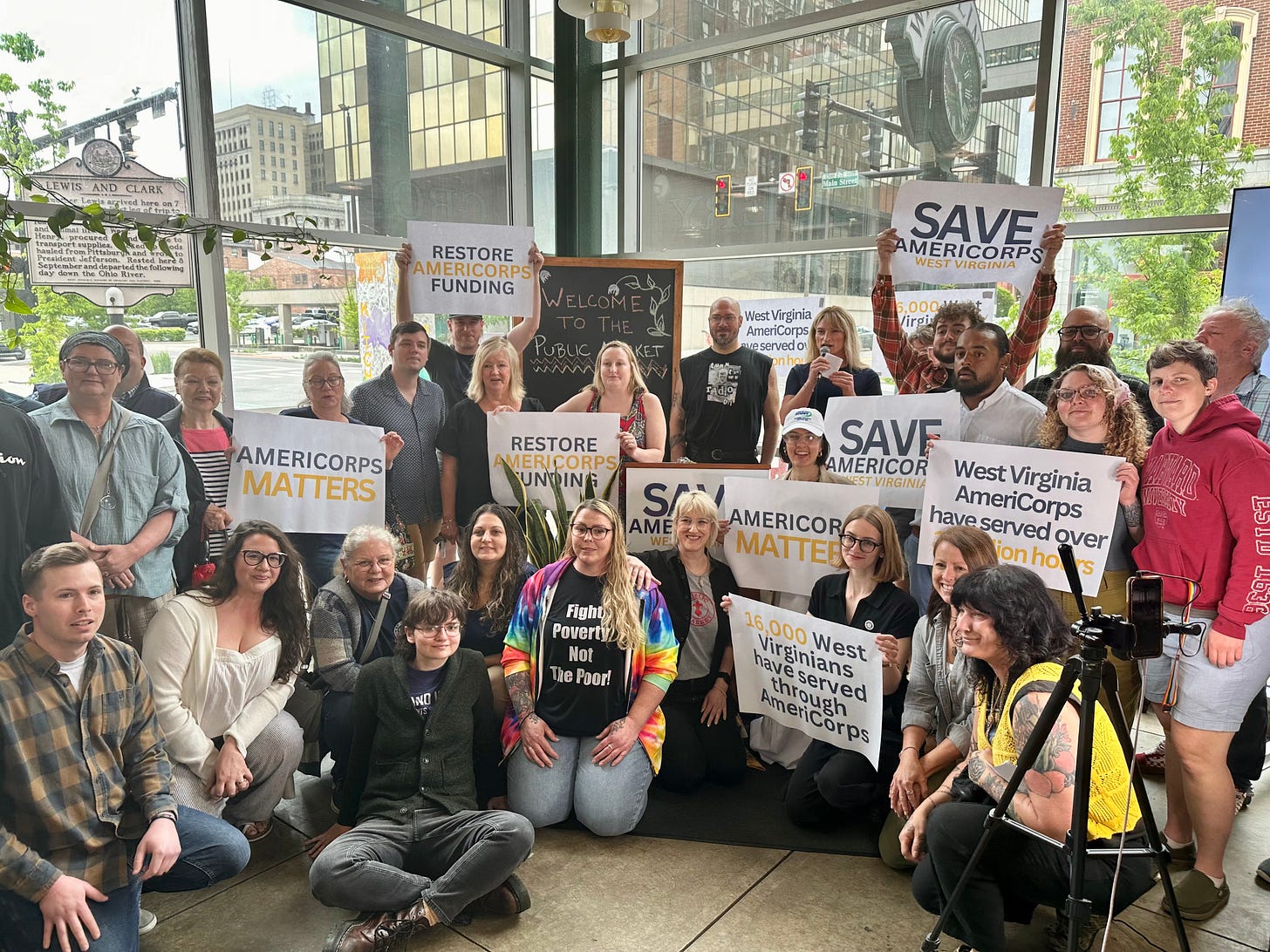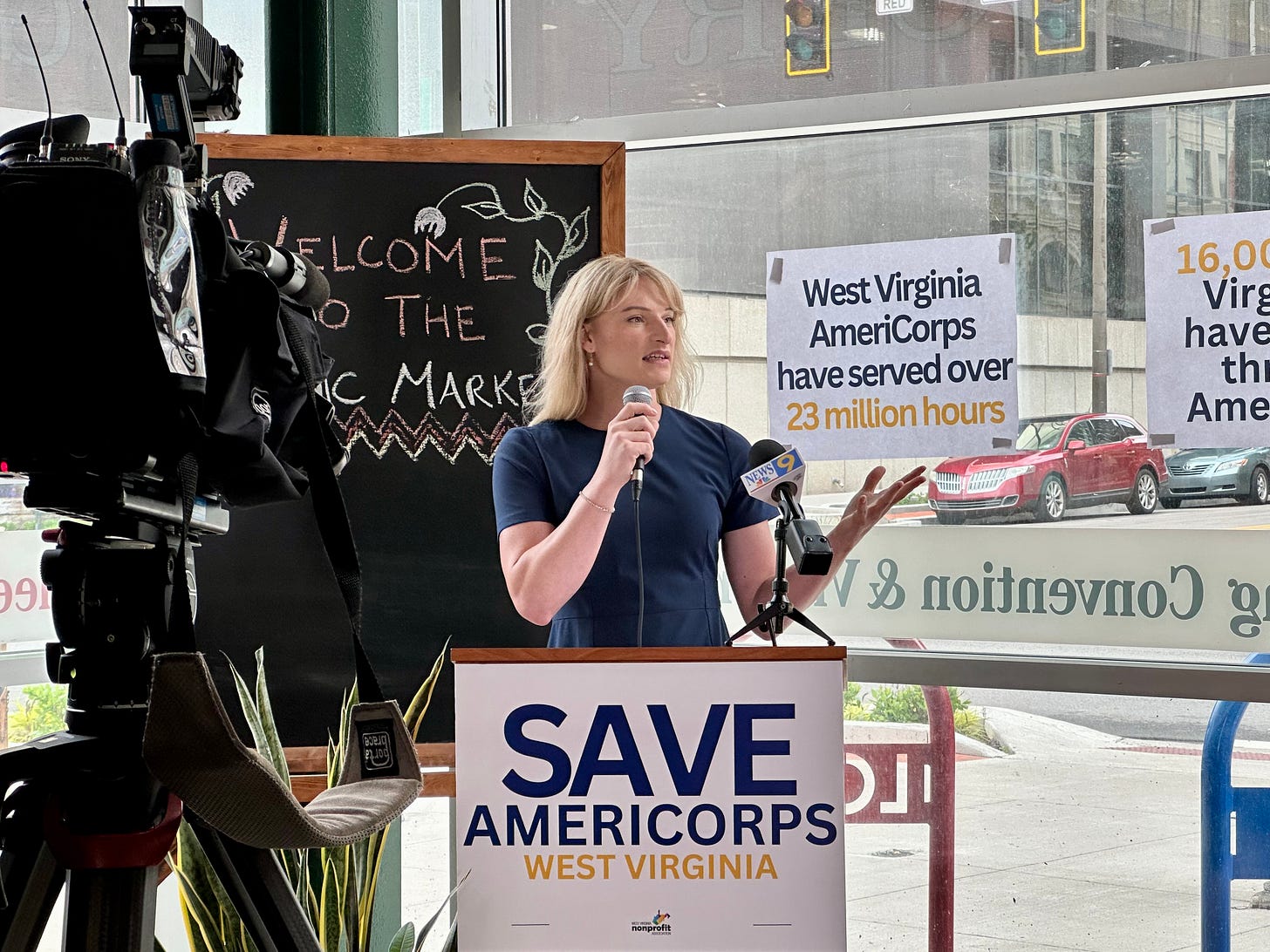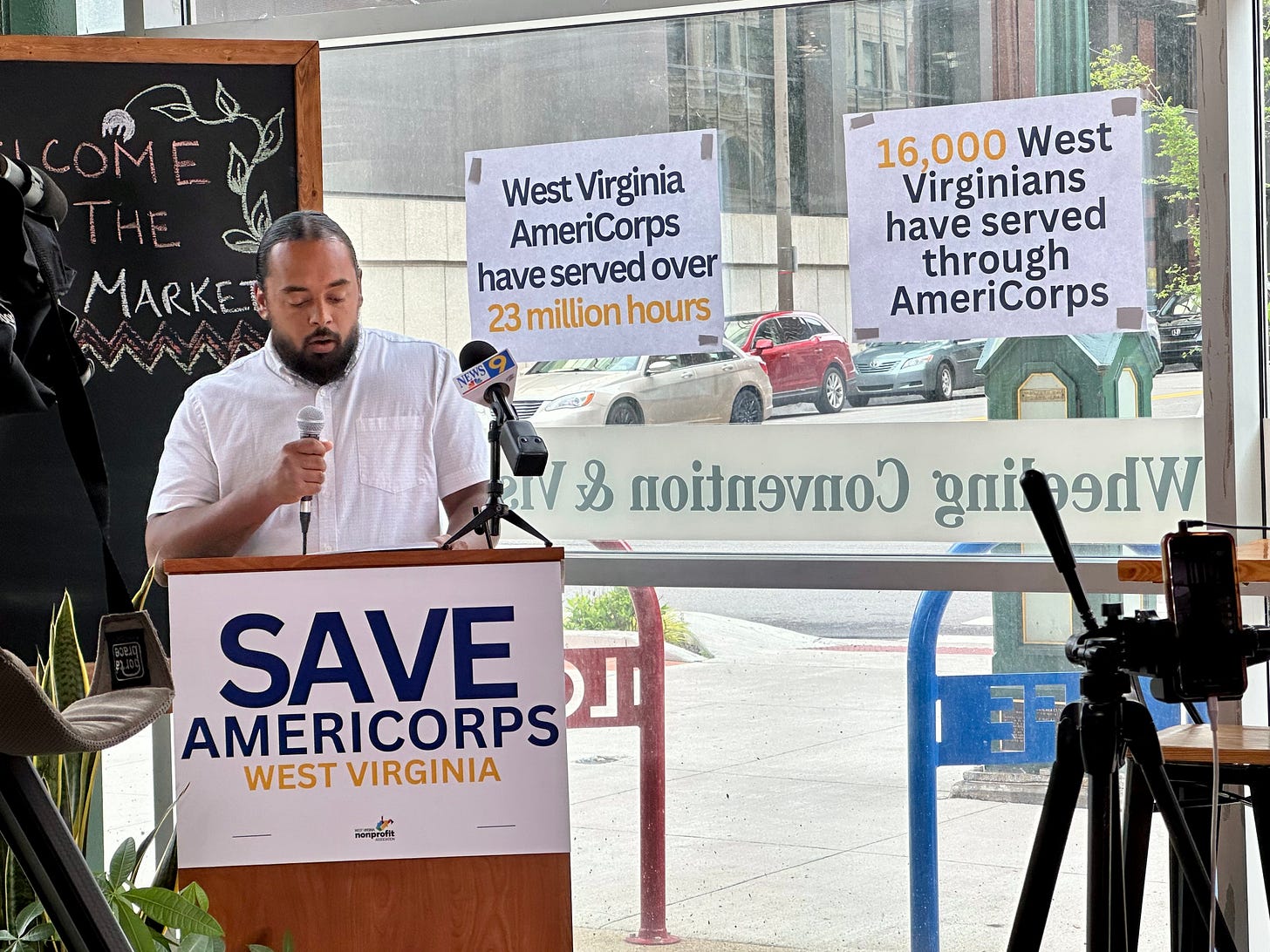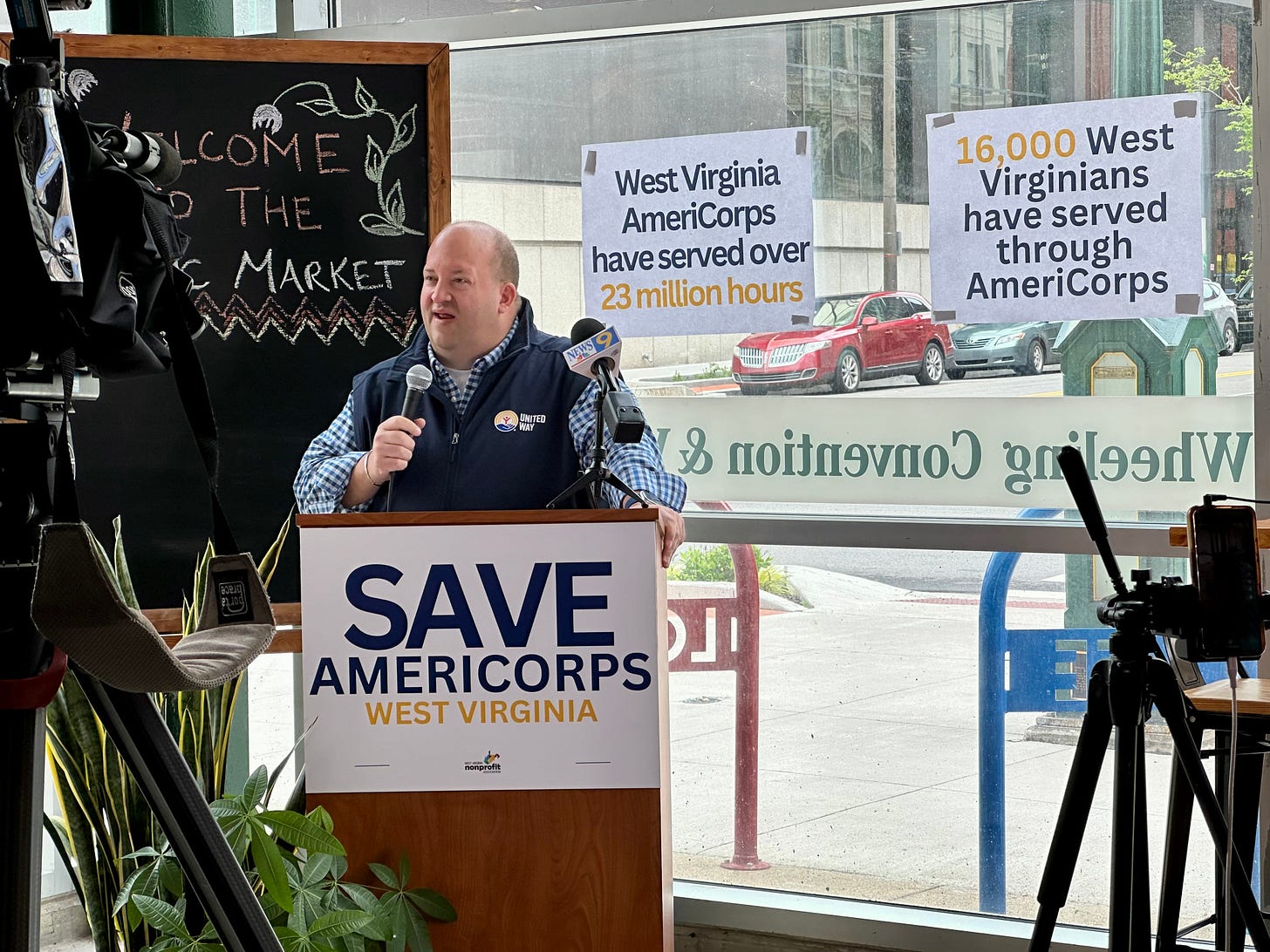State nonprofits decry ‘devastating, severe’ AmeriCorps cuts
West Virginia nonprofit organizations, current and former service members and other community leaders spoke against last month's sweeping AmeriCorps.

WHEELING, W.Va. – The West Virginia Nonprofit Association hosted a press conference Tuesday, May 13 at Wheeling’s Public Market to decry the Trump administration’s sweeping cuts to AmeriCorps funding.
The association invited current and former AmeriCorps members and leaders of state nonprofits to express their disdain for the cuts, share the benefits of AmeriCorps programs and call on state and federal leaders to protect the program.
In April, the department of government efficiency, or DOGE, terminated $400 million in AmeriCorps funding nationwide, affecting more than 32,000 members and volunteers. In West Virginia, the state that recruits more AmeriCorps members than almost every other state, saw 200 positions eliminated, including entire programs at several organizations.
Beginning the conference, executive director of the West Virginia Nonprofit Association Rosemary Ketchum said AmeriCorps is essential for communities.

“AmeriCorps is an essential program through national service that funds local organizations to address critical community needs,” Ketchum said. “[AmeriCorps has] helped knit communities together and, in many ways, it’s been a pipeline for young people to find meaningful careers in public service.”
Ketchum highlighted how AmeriCorps programs help with population retention and even encourage people to move to communities, something she said was vital for West Virginia as it struggles with decades of sharp population declines.
“The AmeriCorps program is one of the only programs that is doing something to reverse that trend,” Ketchum said. “Now, through many of these cuts, organizations are scrambling. They are facing real and immediate strain.”
Ketchum said the funding cuts were a “break in local infrastructure” for communities that rely on the work of AmeriCorps members. “The consequences are going to be felt far beyond the nonprofits that we serve, but families and kids and our elderly community and community members who have been vulnerable for many years.”
Ryan Ewing, an AmeriCorps volunteer with the Mother Jones Center for Resilient Community, spoke of how his service has changed the trajectory of his life.

“I grew up with a parent who struggled with addiction and lived in extreme poverty,” Ewing said. “I also grew up as one of the only kids of color in my community. I never really felt like I had a place in this world and I also felt like I was less than the world around me.”
Ewing said he began using illicit substances and was later imprisoned. Once out of prison and on the road to recovery, Ewing said he struggled to find a job until he found AmeriCorps.
“Almost immediately after putting on my first piece of AmeriCorps gear and having a name tag with that ‘A’ on it, I felt a sense of pride and belonging,” Ewing said. “For the first time in my life, I felt like I was a part of something bigger than myself and a part of making the world a better place.”
Ewing said AmeriCorps gave him the stability needed to continue his recovery, meet his wife, begin studying for a bachelor's degree–a degree he’s just one semester from completing–purchase two vehicles and win full custody of his son.
“Being involved with AmeriCorps has changed my life immensely. I will forever be grateful for AmeriCorps and the role it has played in me becoming the person I am today,” Ewing said. “AmeriCorps isn’t fraud, it isn’t waste, and it for sure is not abuse.”
Brett White, chief executive officer of Tygart Valley United Way, chair of the West Virginia Nonprofit Association and commissioner with Volunteer West Virginia, said the loss of AmeriCorps programs in West Virginia was ‘devastating.’

Speaking of his own experience as an AmeriCorps volunteer, White said he leaned the true meaning of “grassroots service, community resiliency and showing up even when resources are scare,” quipping that “if there’s one thing AmeriCorps members know how to do, it’s how to pinch a penny and get things done.”
“I’ve seen firsthand the real and lasting impact that AmeriCorps members make in our communities,” White said. “[This] loss is not abstract. It is not government waste. It is not what they’re telling us. It is a lost mentor…tutor…safe space for a young person who needs it most.”
White said AmeriCorps was an investment in the community, echoing other speaker’s comments pointing out the program returns to communities between $17 and $34 per dollar spent. “These cuts don’t just gut budgets, they gut momentum, they gut our connection and they gut our opportunity,” White said.
White ended the press conference with a call to action.
“To our state and federal partners, we need your voice. We need your leadership,” White said. “To the public, reach out to your representatives. Tell them what AmeriCorps has meant to you, to your school, to your family [and] to your community. Do not grow quiet. This is not the end of our story.”
Other speakers included Devin Preston, director of programs at High Rocks, Jodi Adams, executive director of Grow Ohio Valley, Beth Collins, executive director of the Sisters of St. Joseph Health and Wellness Foundation, and Paul Smith, commissioner with Volunteer Wheeling.

